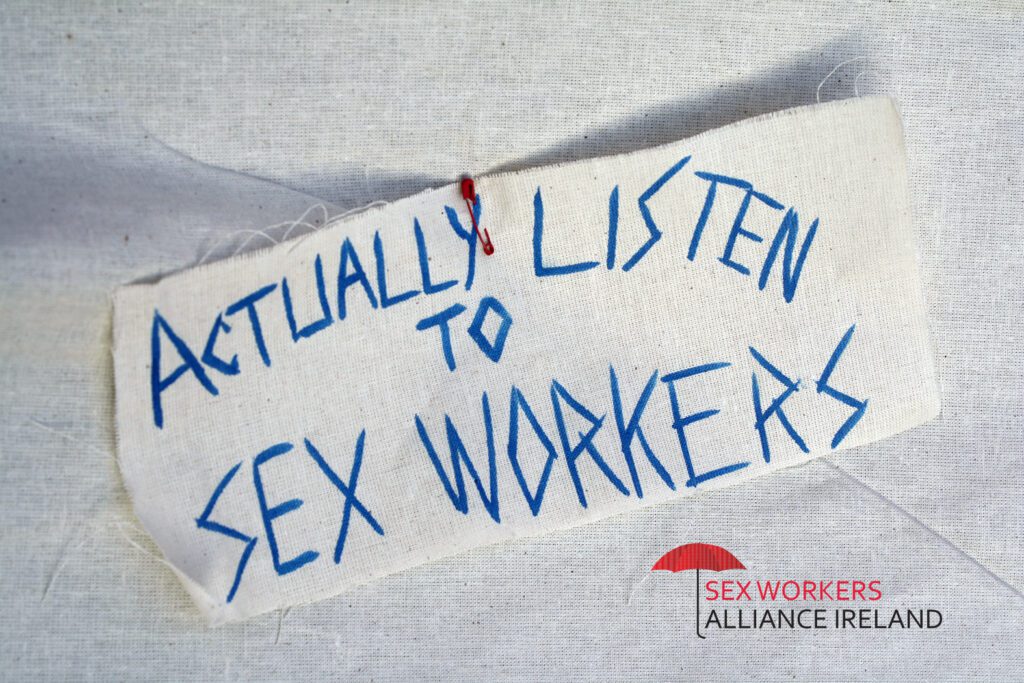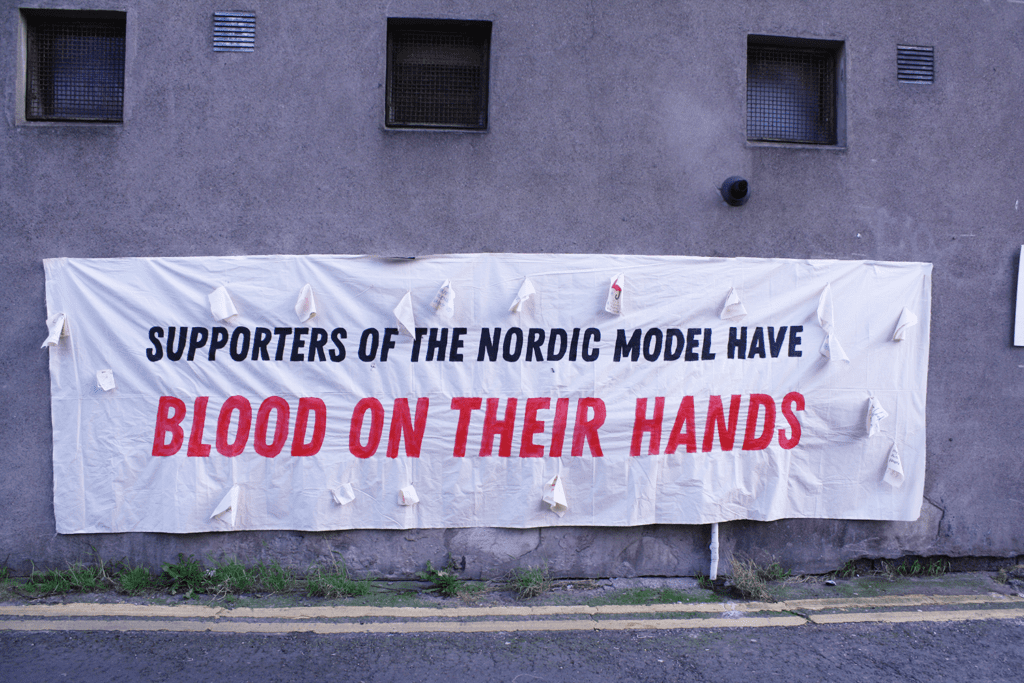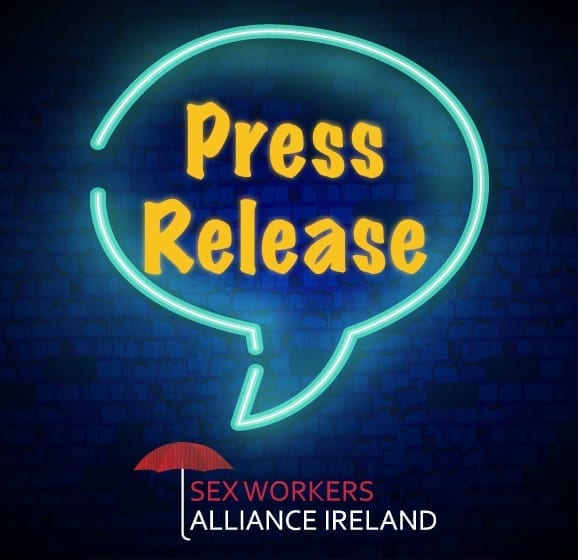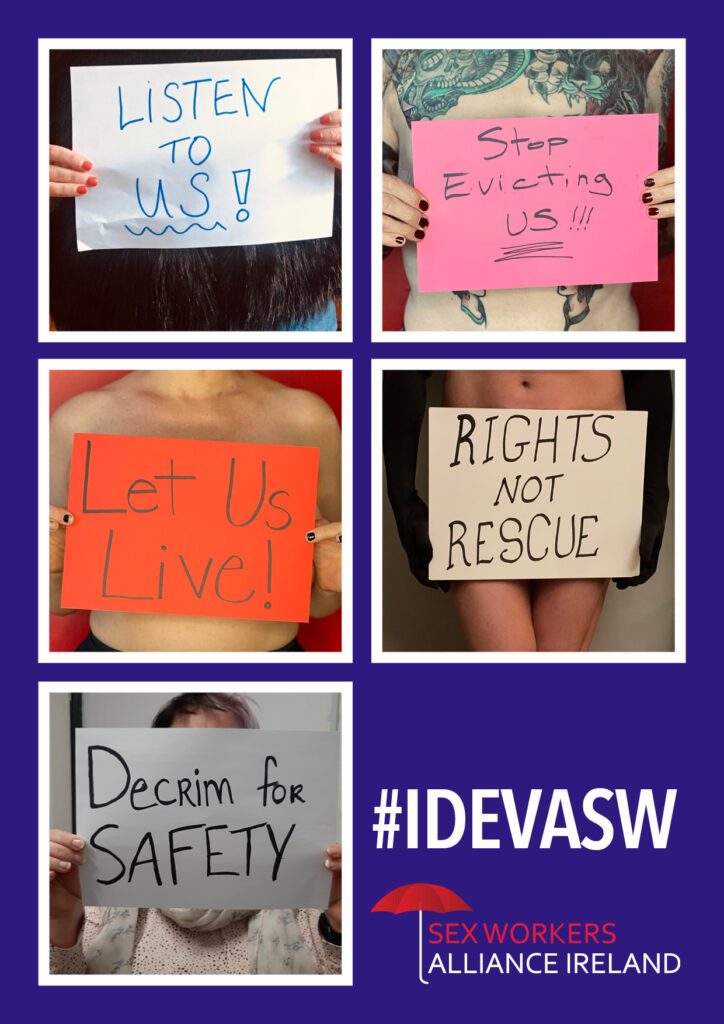
“The review of the law governing sex work in Ireland is not worth the paper it’s written on”, says Linda Kavanagh, spokesperson of the Sex Workers Alliance Ireland.
Part 4 of the Criminal Law (Sexual Offences) 2017 was due to be reviewed in 2020 but due to myriad delays, it was not released until yesterday. Linda Kavanagh continued “From the start, this review has been conducted in the most unethical and frustrating way possible.
The terms of reference for this review state that the review will assess “the impact of the operation of that section on the safety and well-being of persons who engage in sexual activity for payment.” There is no evidence that active sex workers support this law in this report. No weight has been given to the voices of currently active sex workers in this review and there is scant evidence that sex workers were properly engaged in this process. The onus is on the Department of Justice to do this and SWAI raised this concern during forum discussions.
From the initial survey to this final report, the review has taken the stance that the law is in and of itself a positive thing. SWAI fundamentally disagrees with this position and is supported by extensive evidence that sex workers are harmed by these laws.
“There is no way to police the purchase of sex without surveilling sex workers. This review supports wasting Garda resources and increasing surveillance powers. Is the Department of Justice going to ignore how Gardaí have abused their powers? Where is the Department of Justice commissioned ‘I Must Be Some Person: Accounts from
Street Sex Workers in Ireland’ report?
Minister O’Callaghan has admitted that demand for the purchase of sex hasn’t been reduced, so we ask, how can this report say that the law has made progress towards its objectives? Our concerns about the brothel-keeping laws, echoed by the sex workers who were spoken to, were dismissed because “the official statistics identify a shift away from the targeting of the seller to the purchaser”. Only 15 people have been prosecuted for purchasing sex! This also overlooks the fact that brothel-keeping raids and welfare checks to disrupt sex workers don’t end in convictions, but the consequences for sex workers are severe. Gardaí are still targeting sex workers in this way.
Where is the evidence that the law has reduced trafficking? Where is the proof that the law has removed barriers to sex workers accessing social infrastructure or paths to justice? Does it show that sex workers now increasingly report to the Gardaí when they want to report abuse? Does it show that violence against sex workers has decreased under the law? The answer to all of this is NO!
For seven years we have listed how the law has affected the safety of sex workers. Condoms are used as evidence that sex work has occurred, flying in the face of HIV prevention plans and highlighting the hypocrisy of the government. Sex workers are forced to work alone to work legally, which is not something any other worker is forced to do.
Government policy leads people into sex work and then it ensures sex workers are less safe. Instead of offering sex workers criminalisation of their income and non-existent resources like the “two dedicated phone lines for direct contact with An Garda Síochána on a 24-hour basis” sex workers should be listened to about the reality of living and working under the law. Where are the calls for resourcing sex workers to learn about their rights?
State bodies have taken a cowardly approach to sex work. Sex workers were written out of policies and strategy documents. Sex work is framed as gender-based violence instead of an economic activity, which ignores the autonomy of sex workers, removes their labour rights and neglects male workers altogether. Sex worker-led organisations are denied funding. This myopic approach creates a feedback loop that means that the state is praised for actions by organisations that do not engage with sex workers in meaningful ways.
The law has failed on its own terms, that much is clear. What isn’t clear is how the government and the Department of Justice can continue to ignore the health and safety of a population that it recognises as vulnerable.







